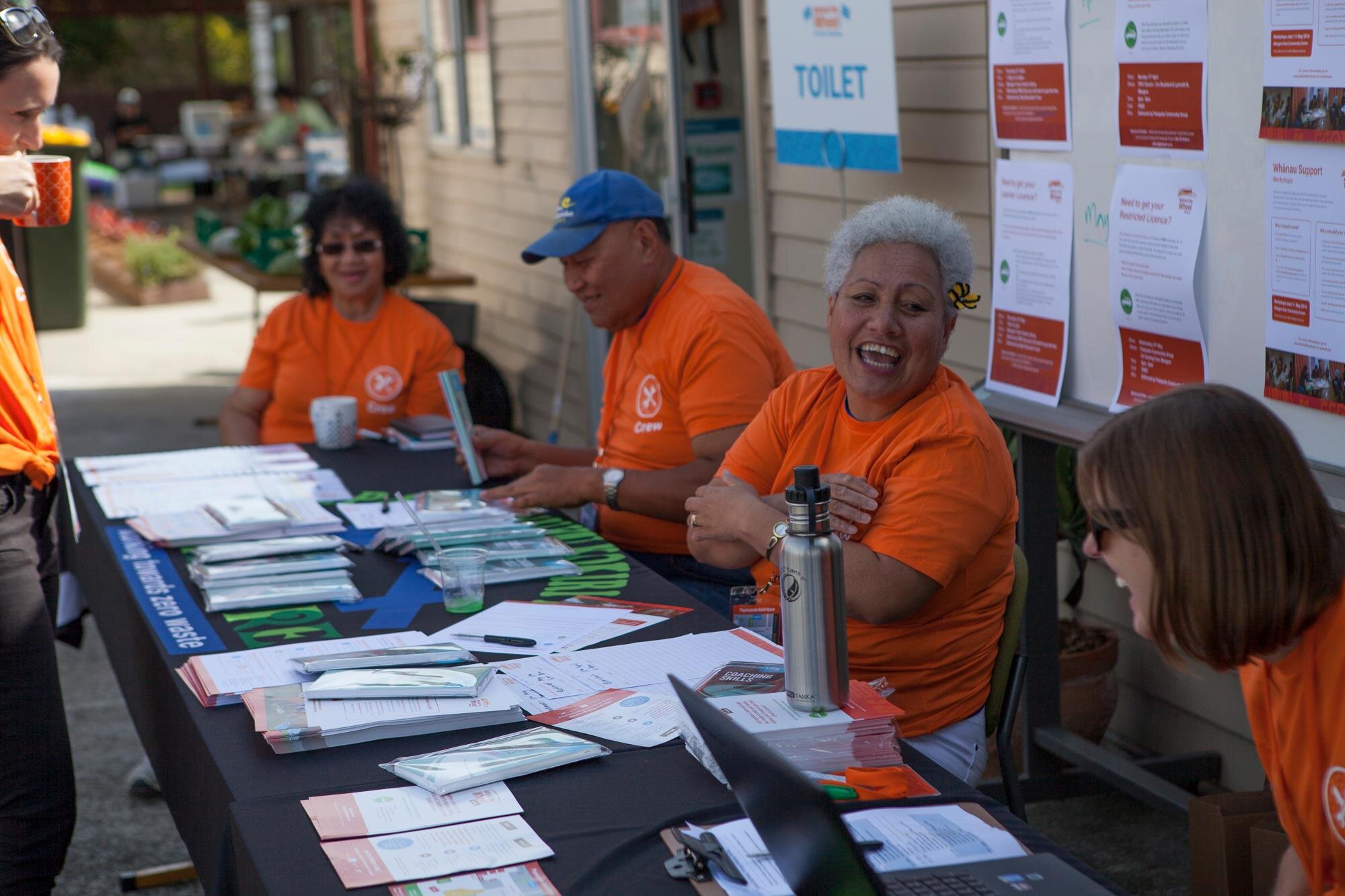Driving community-led behaviour change
Recognising that an increasing number of young people were driving without a licence, New Zealand government agencies commissioned a community-based programme to change local drivers’ behaviour. This was not only about road safety, but also a social and economic issue, since not having a driver’s licence limits employment and other opportunities.
The design and development of the campaign was driven by a local working group of community leaders and a co-design group of young people and whānau (family) living in Māngere, South Auckland.






Engaging community members in research, design and delivery
As Project Lead at innovate change, I worked closely with delivery partner Curative, community members and stakeholders to co-design and co-produce the community-led social marketing programme. We started by combining a review of literature and local data with community research activities to better understand the problem and context.
Our co-design group was made up of young drivers and family members, professionals, community leaders, and ‘creative provocateurs’ who were not connected to the issue. This group defined the target audience and behaviour change goals, then participated with other community members in idea generation and testing activities. The most promising ideas were refined and implemented in an iterative fashion, with local community members continuing to act as co-designers throughout the implementation phase.
Community members and stakeholders were involved in all phases of design, development and delivery. As a result, Behind the Wheel effectively responded to current views of the licensing system, road safety and driver behaviours. Importantly, project activities also met the needs of the community. Some of the co-designers in this project even started to lead change in their family and community, beyond their involvement in the co-design process.
A campaign that achieved behaviour change and community ownership
An independent evaluation concluded that Behind the Wheel achieved its key goal of increasing young drivers’ (and their family members’) knowledge about the different stages of licensing, how to get a full driver’s licence, and the different licence conditions.
Media coverage featured some of our co-designers sharing their experience of participating in the programme.
The biggest indicator of success was the community taking ownership of the programme. After the government funding and our agency’s involvement ended, a community organisation was determined to see the programme continue. They felt it had been a really positive and critical part of bringing their community together, supporting young people, and making their roads safer.
‘Behind the Wheel’ won a Public Good Award in the 2016 Best Design Awards.
What people said about Behind the Wheel
“There was a whole range of activities that made us think outside the square and contribute, which brought about Behind the Wheel. So there was some really deep thinking, there was some responsibility from us as a community in terms of the design of Behind the Wheel and it was good to have that voice. But if we didn’t have the expertise and the organisation from Innovate Change and ACC I don’t think it would have been that flash.”
— Co-designer (community leader)
“[I'm proud of] what we’ve accomplished from scratch and how many people now have their licence.”
— Co-designer
“It has actually empowered the community to become the main focus. Rather than people coming in and doing things to the community, the community have been allowed to become part of it… it is important for sustainability.”
— Local working group member
“The design approach of taking community champions, training them up and using them has been very good ... It's helped not just to get the momentum going but to get that real sense that we've got really valid solutions that are grounded in what the local community are actually interested in.”
— Project sponsor
Project participants share their experience working with innovate change (now Innovation Unit)
